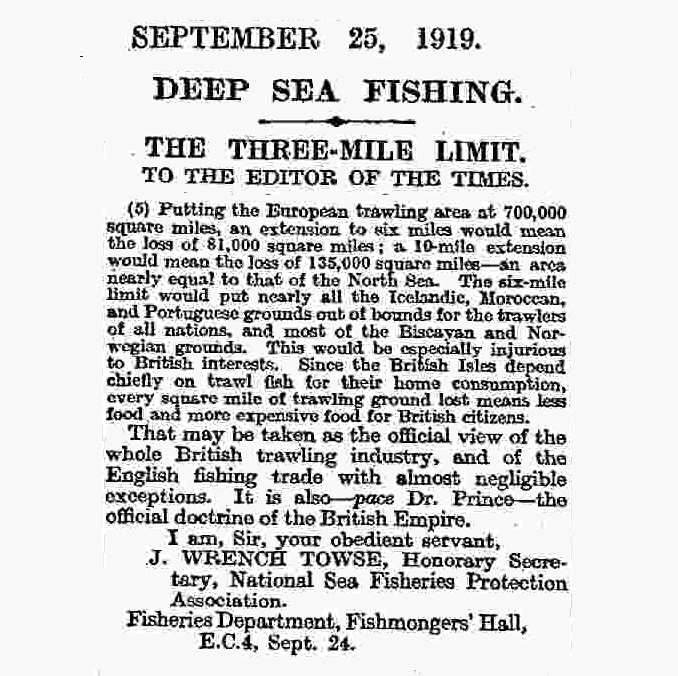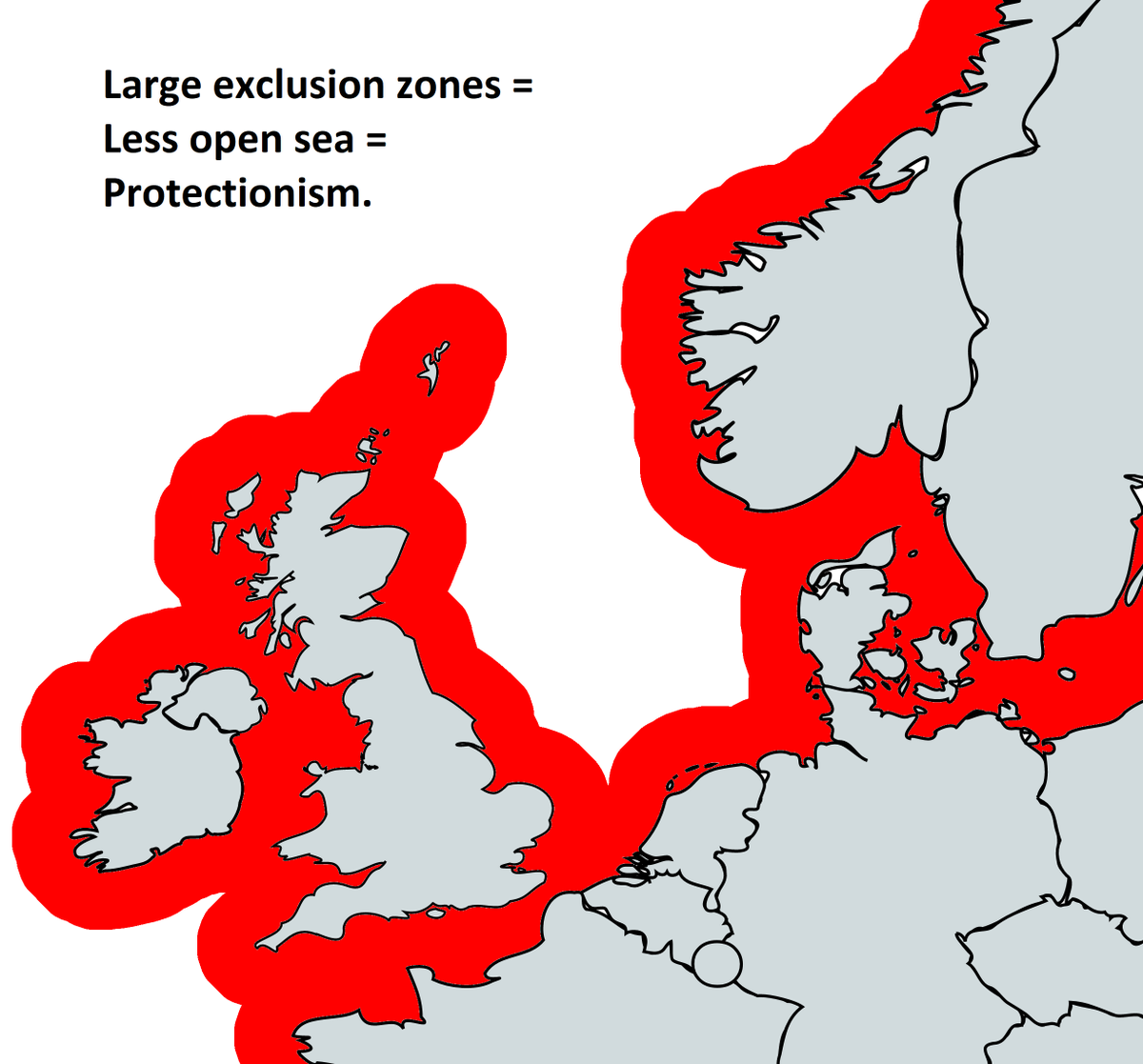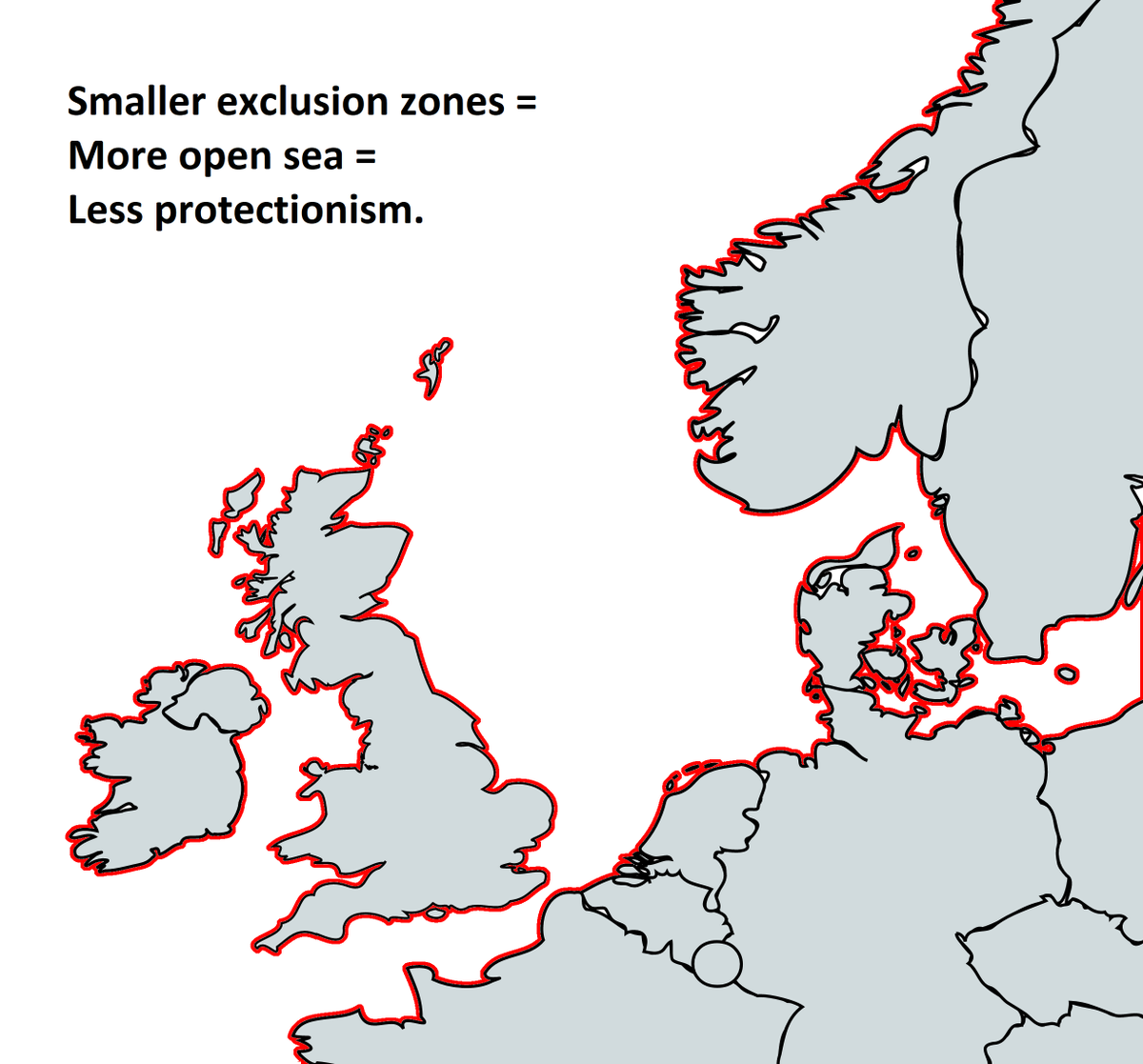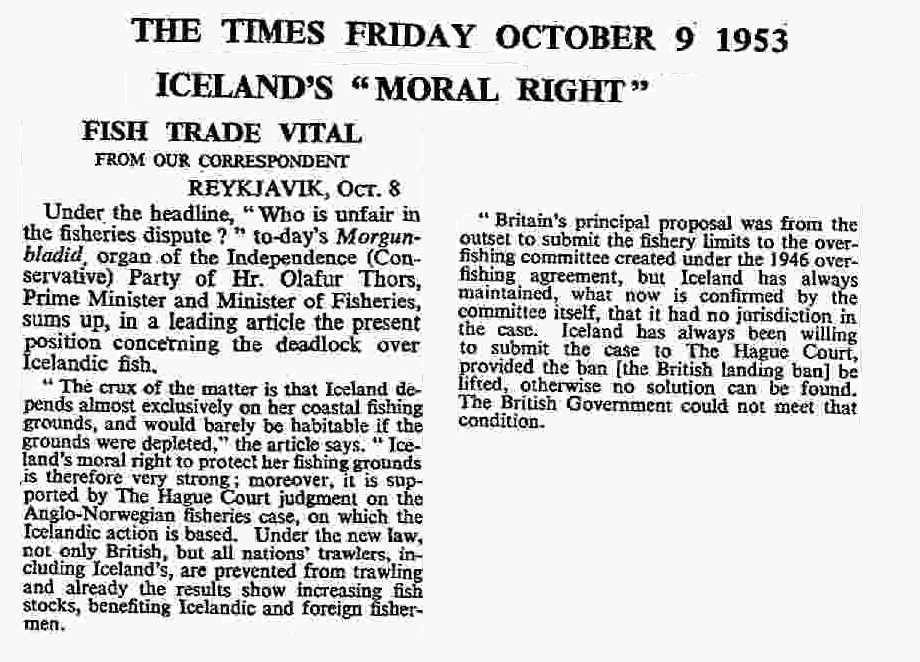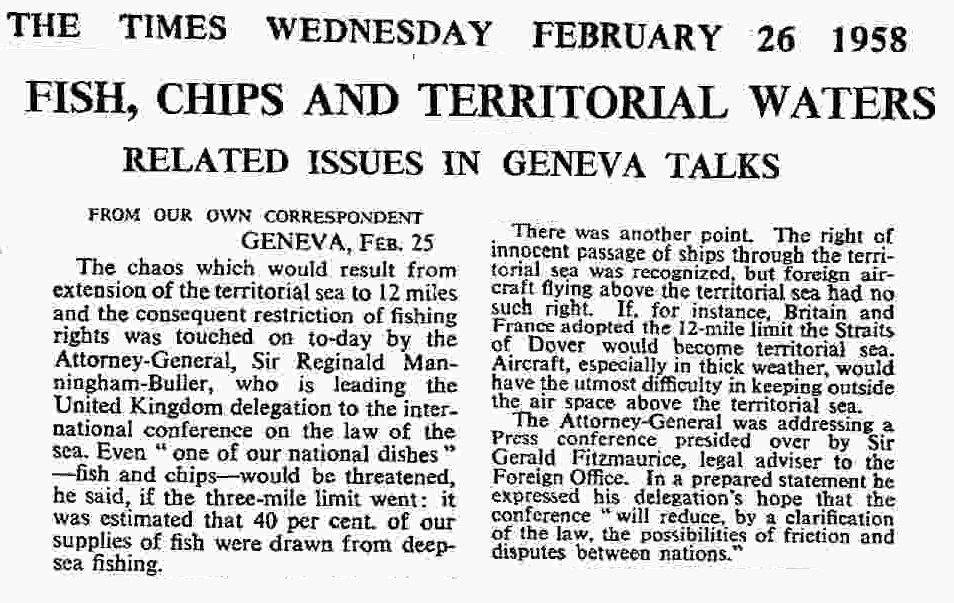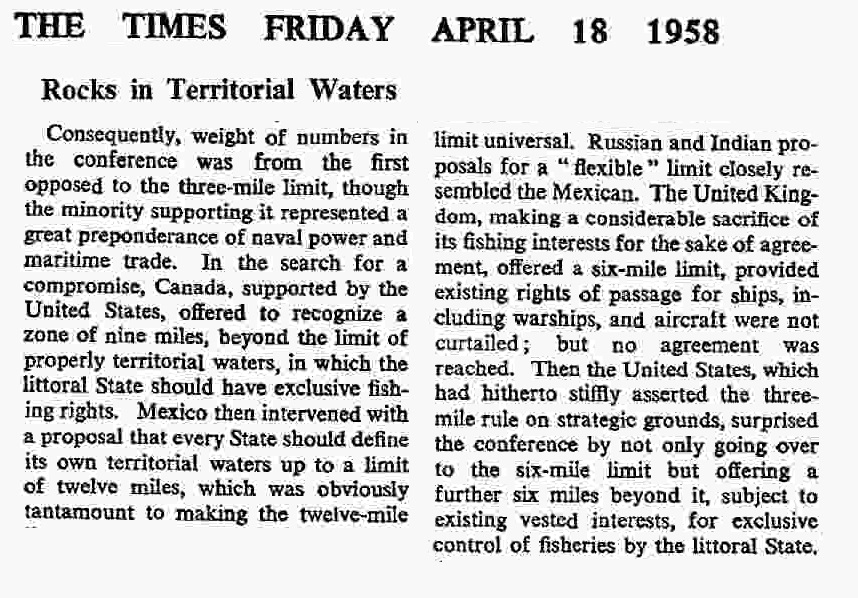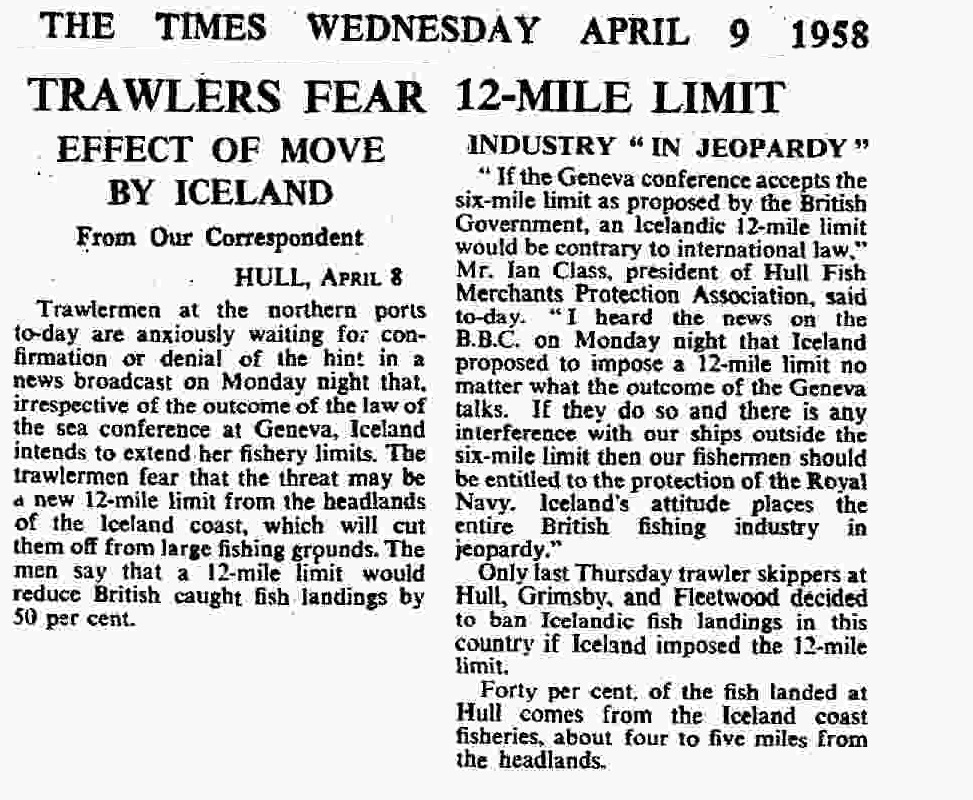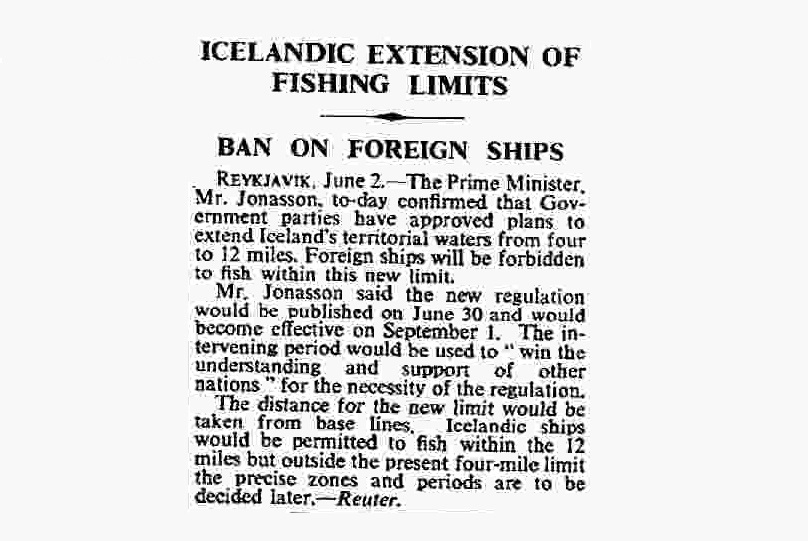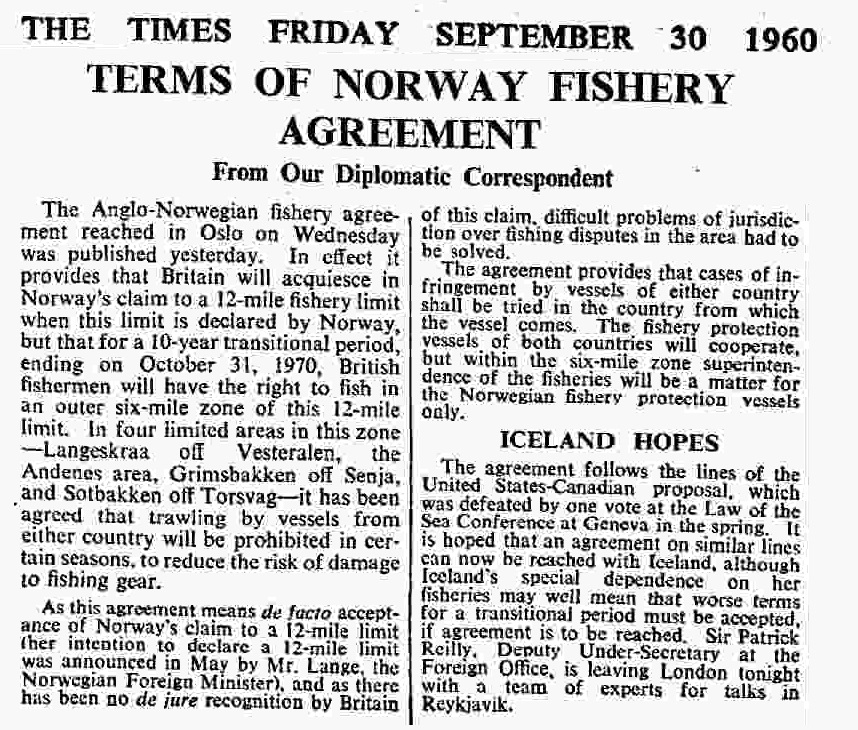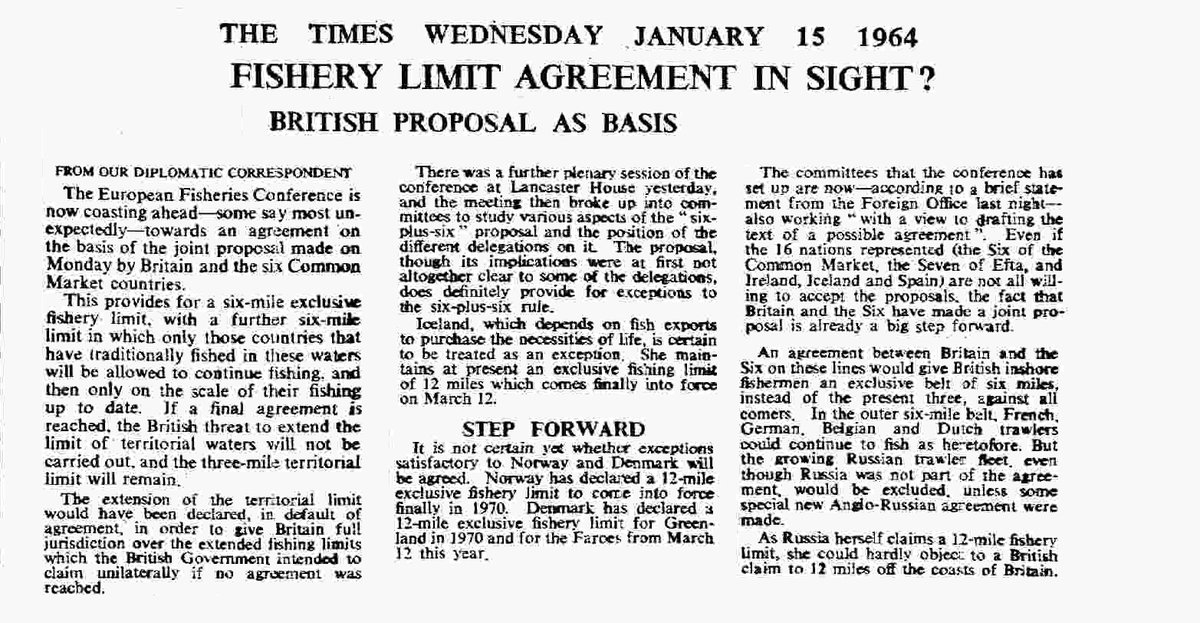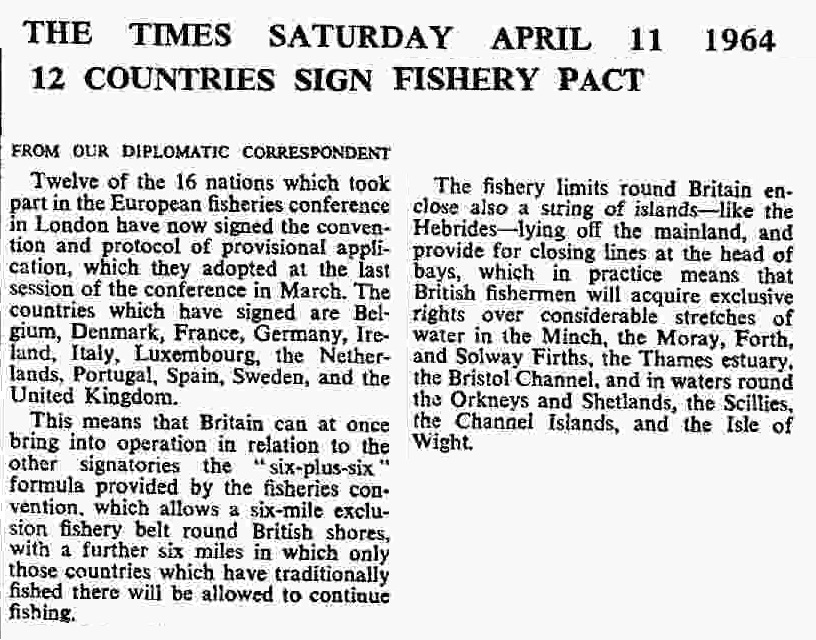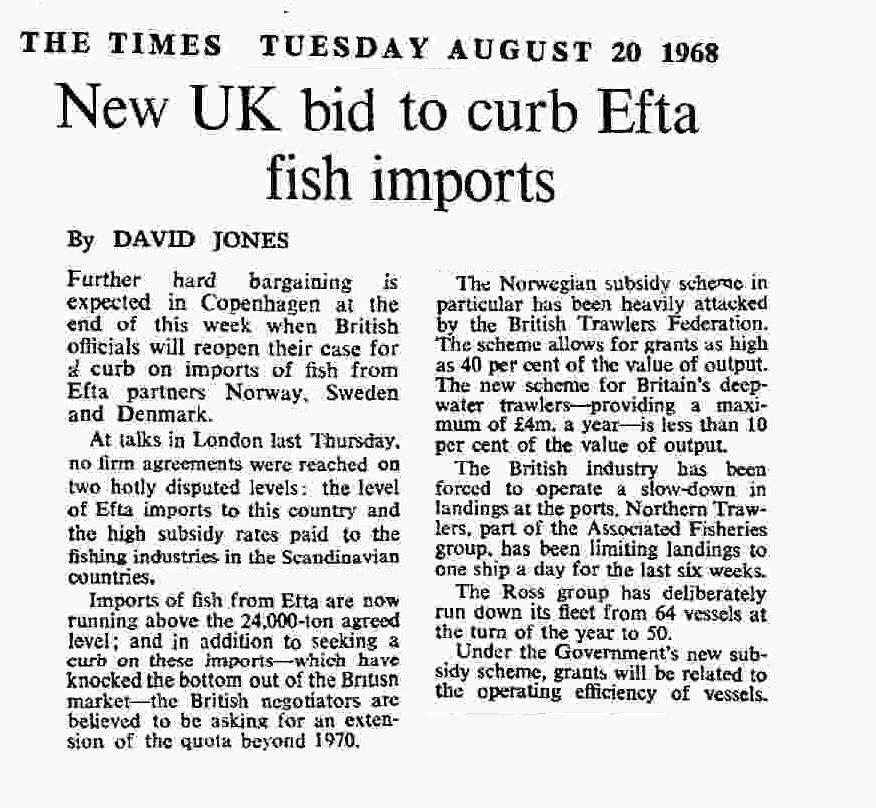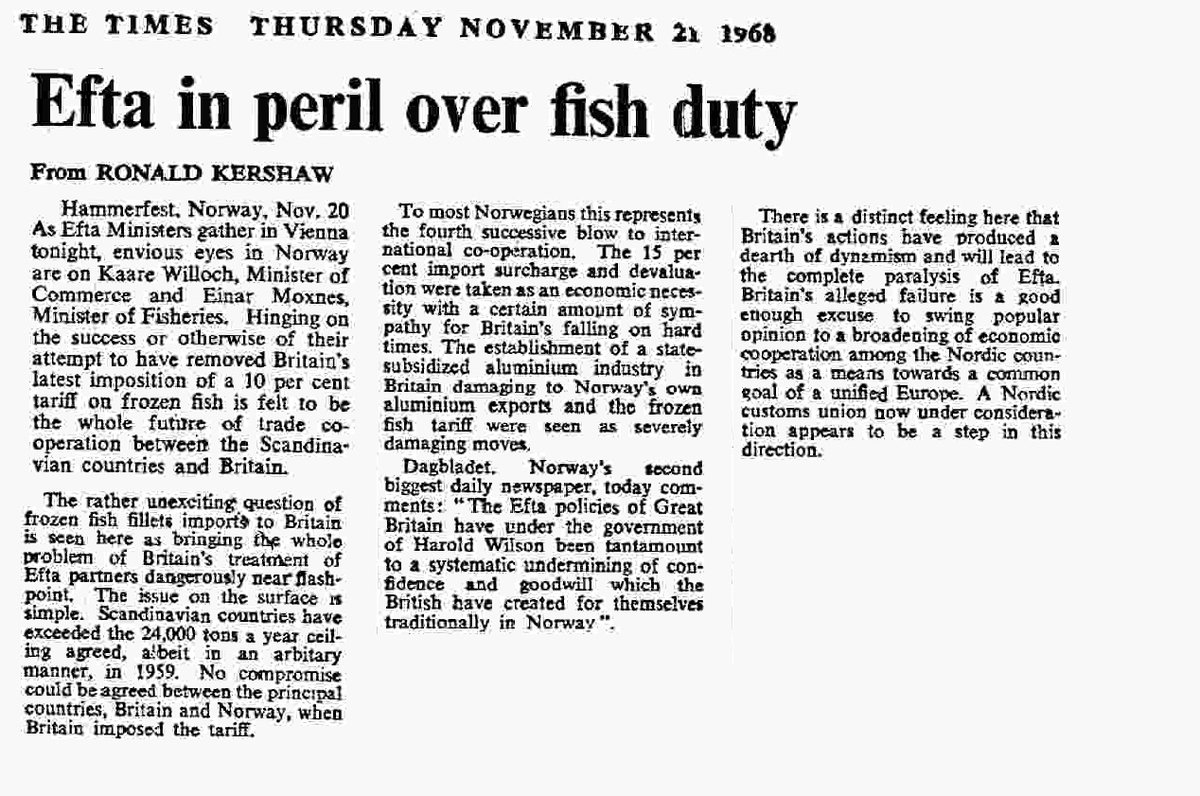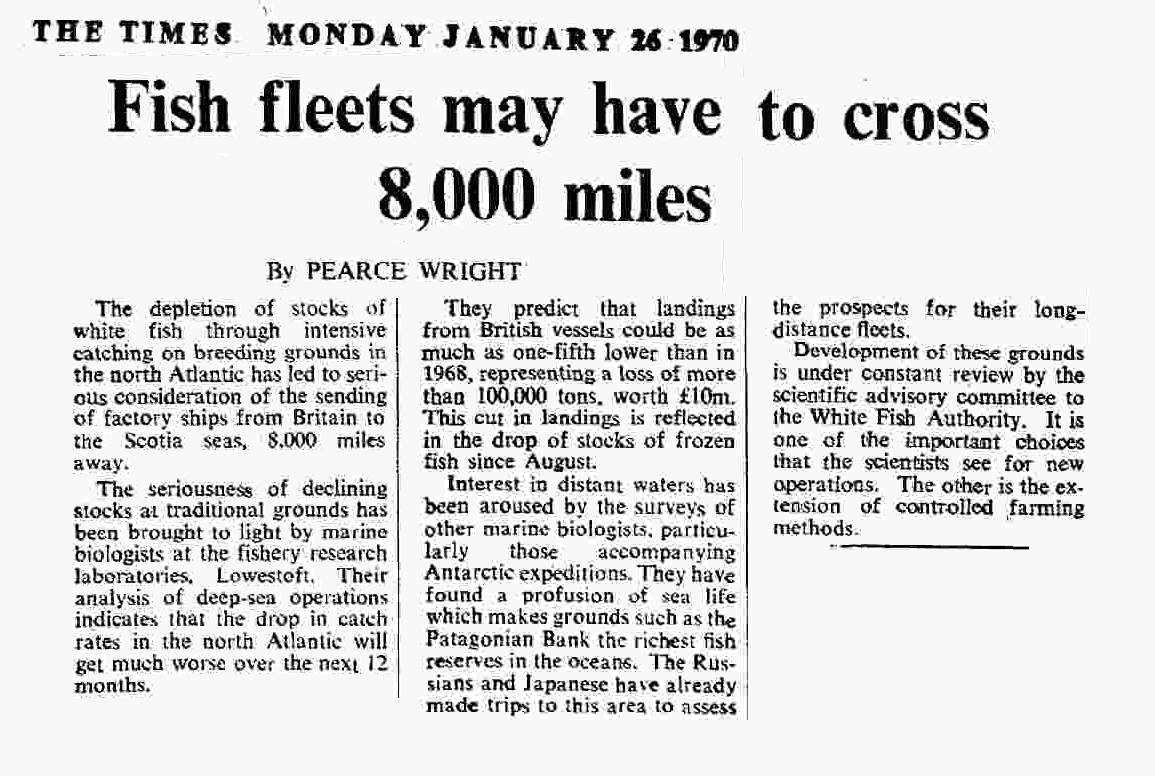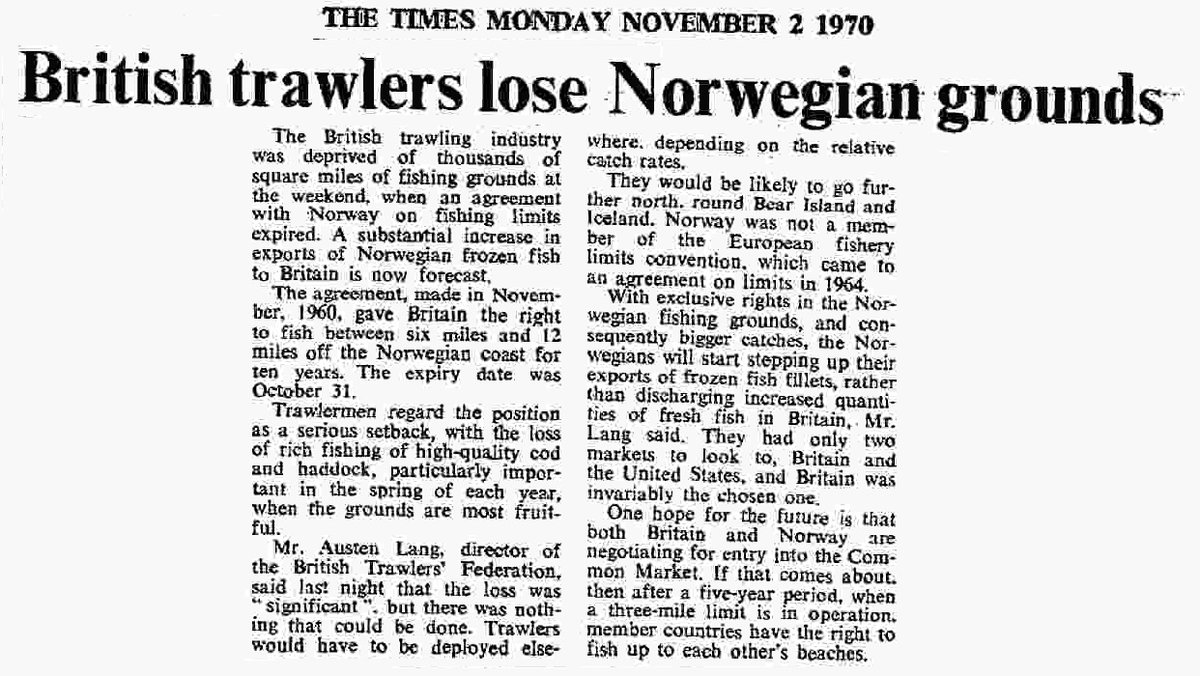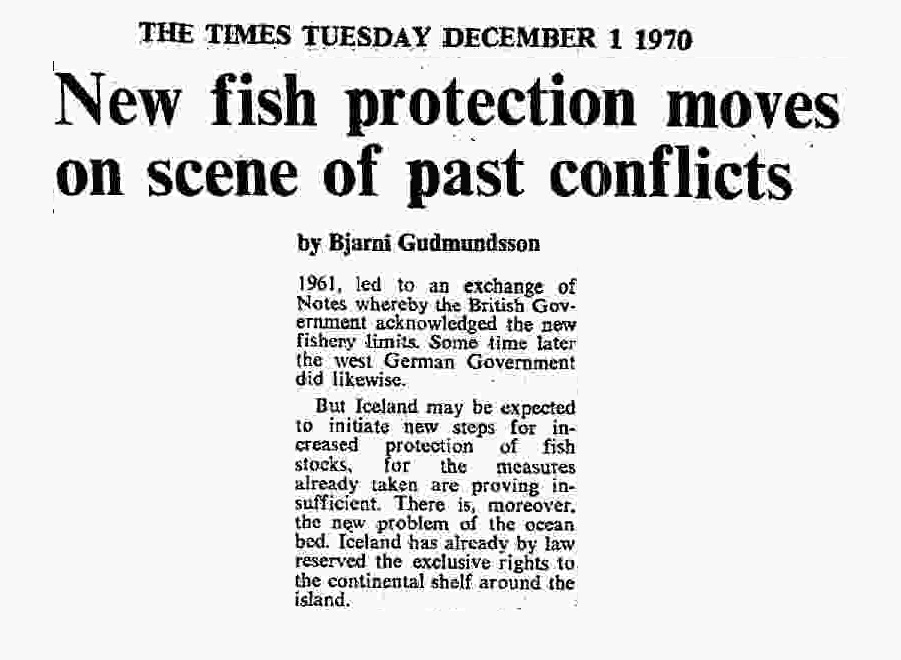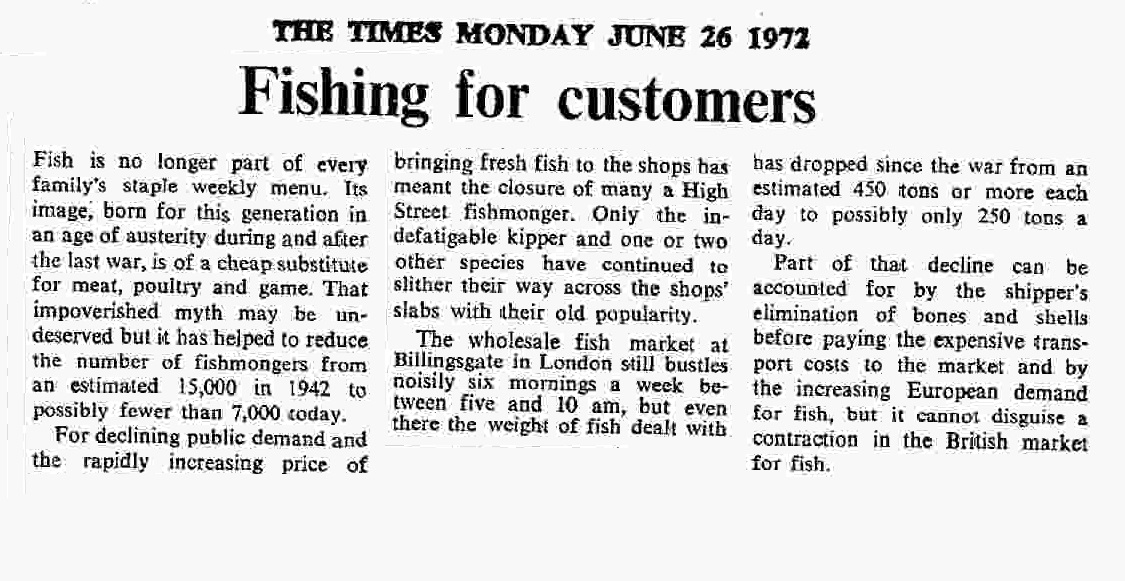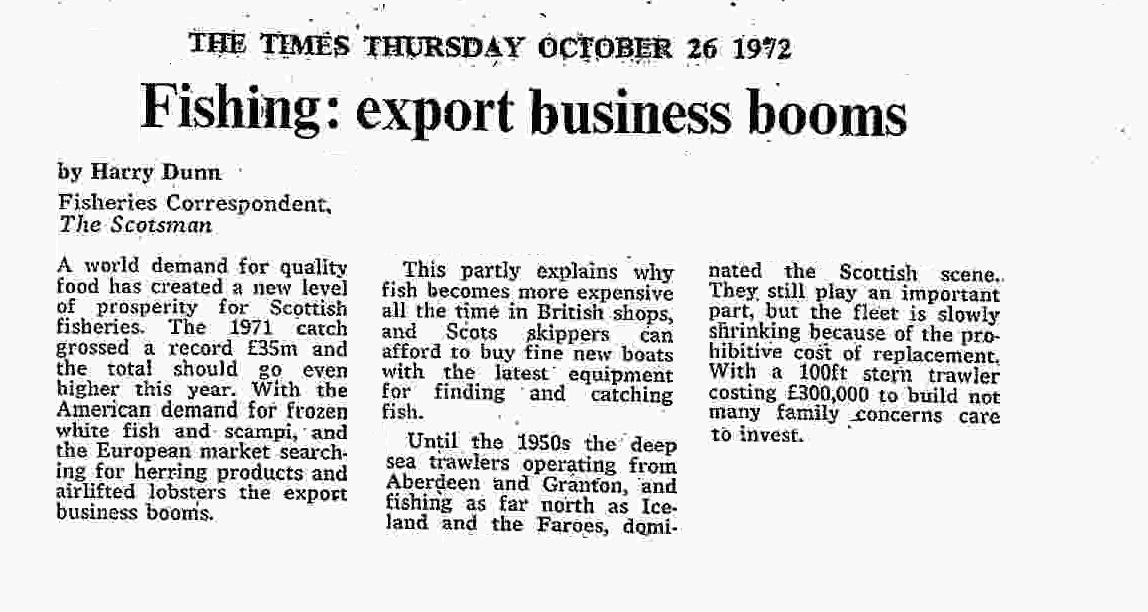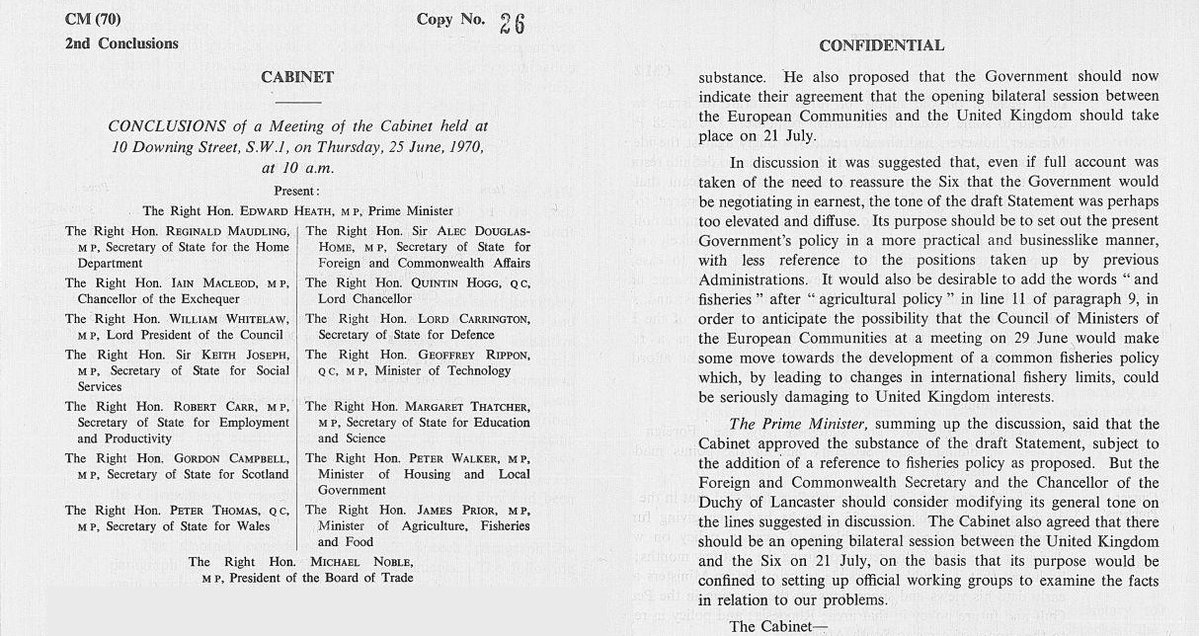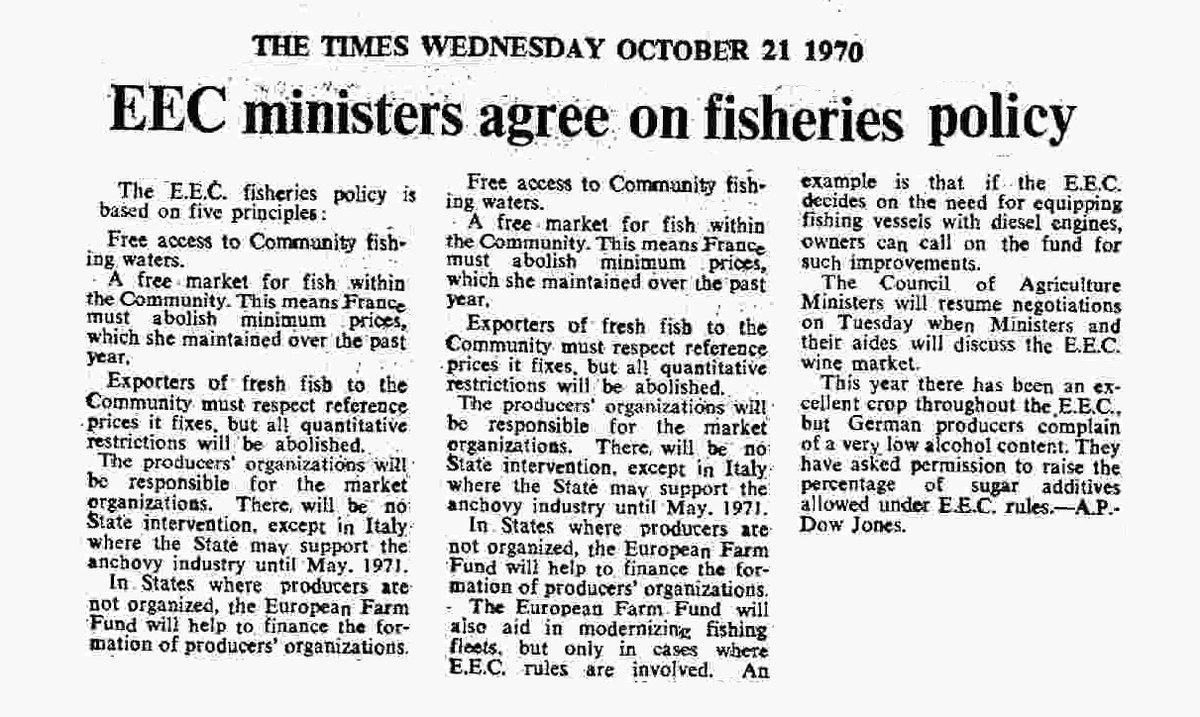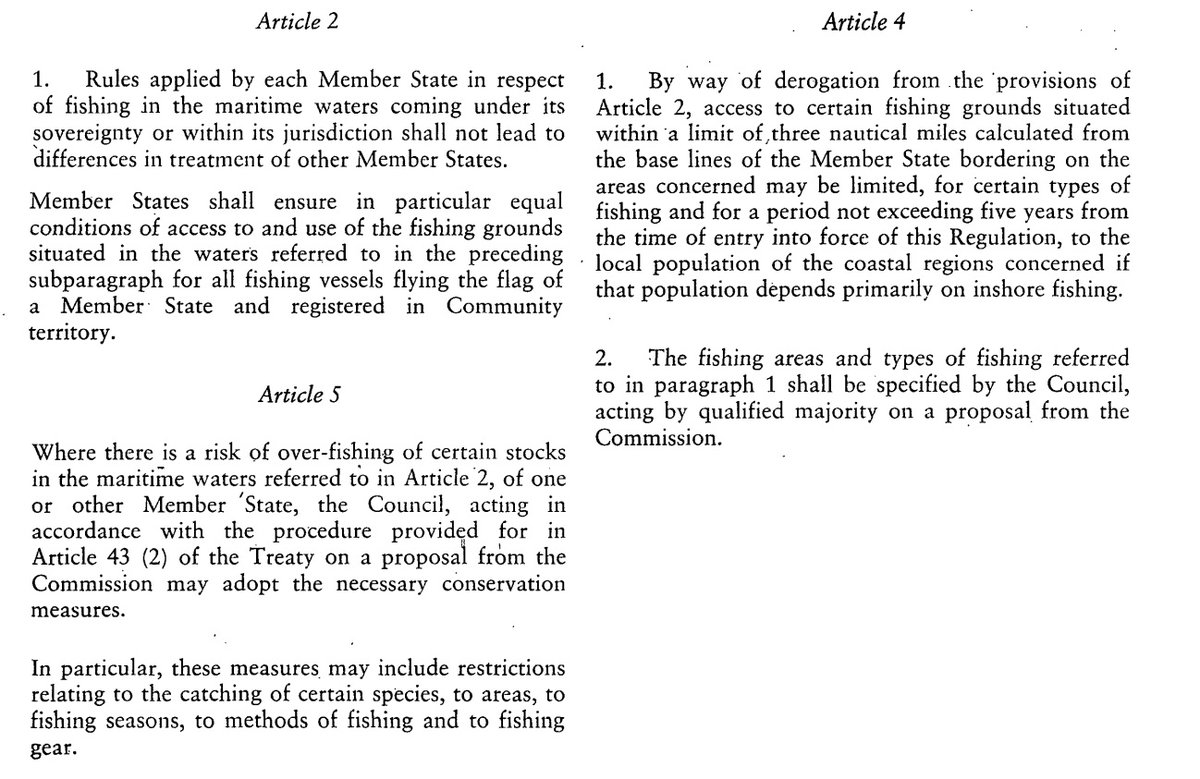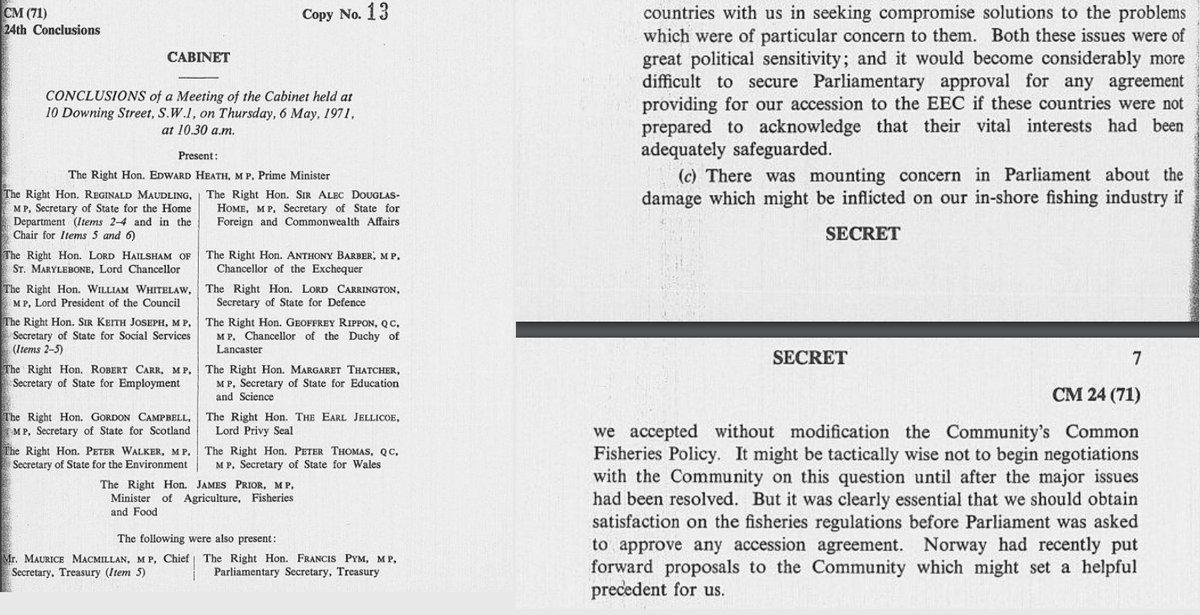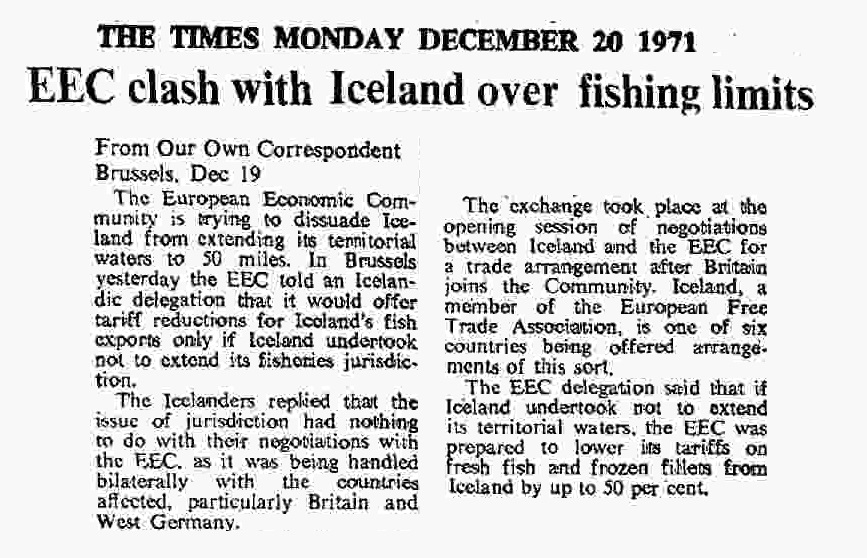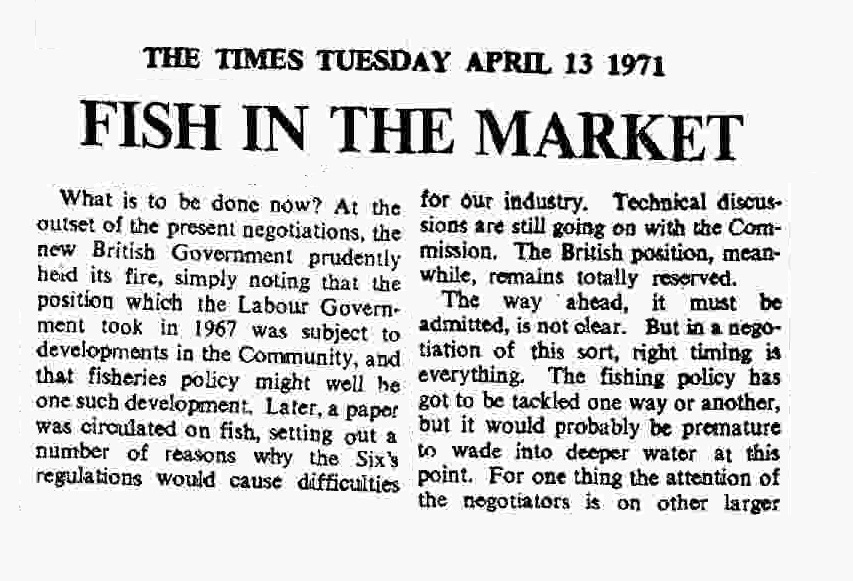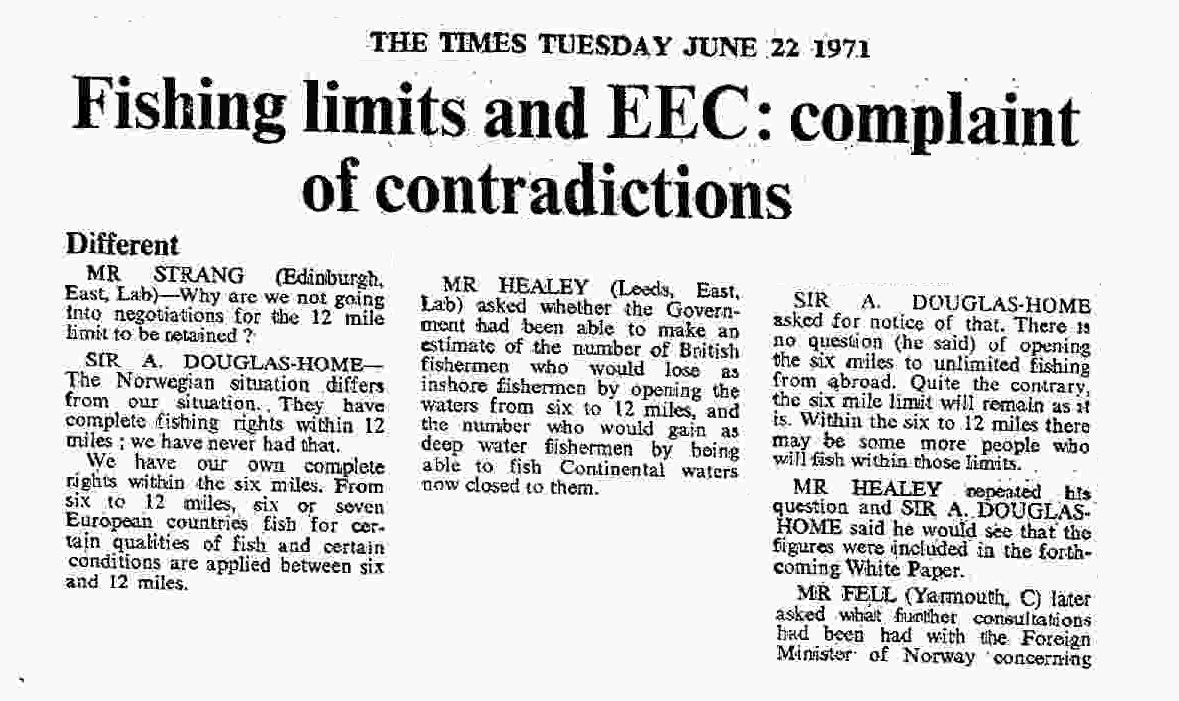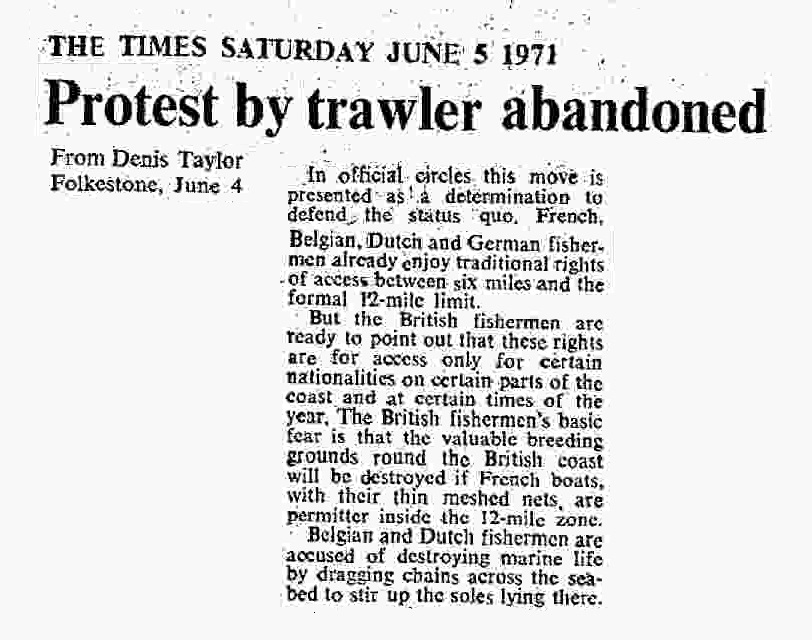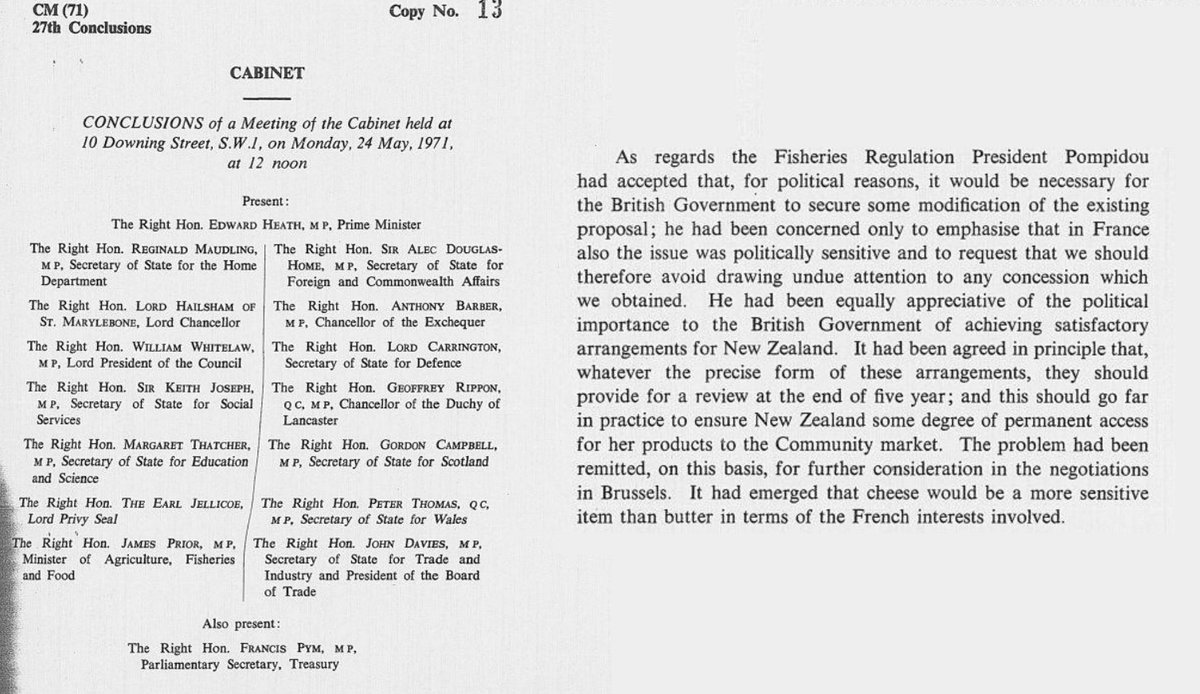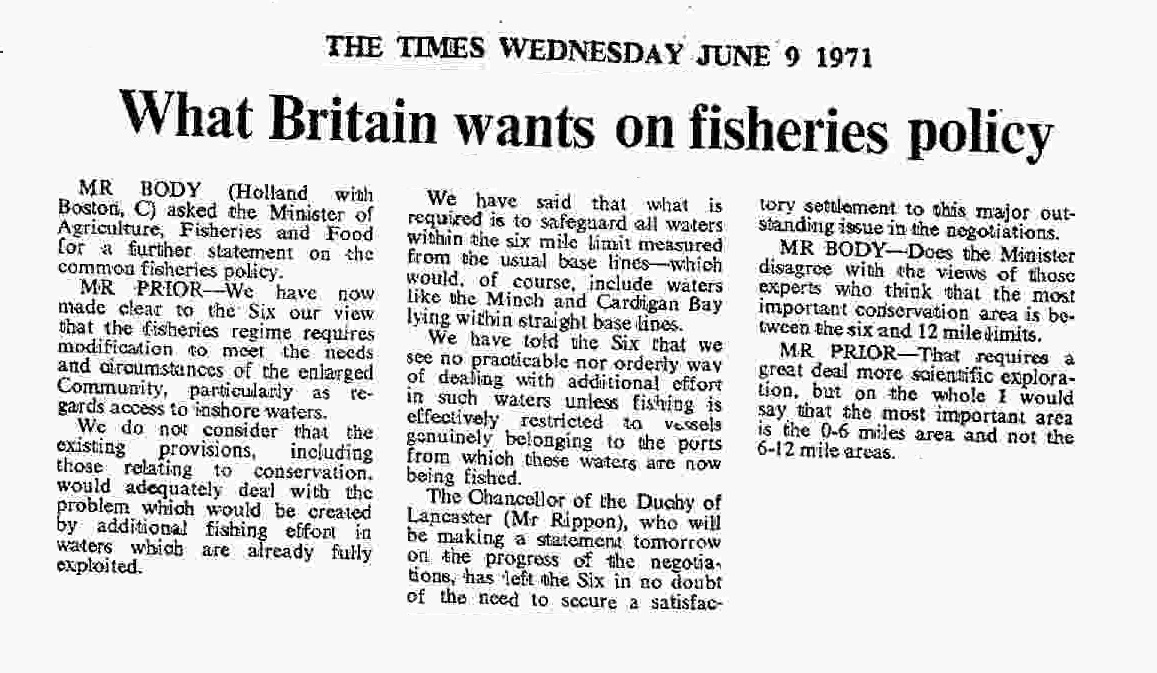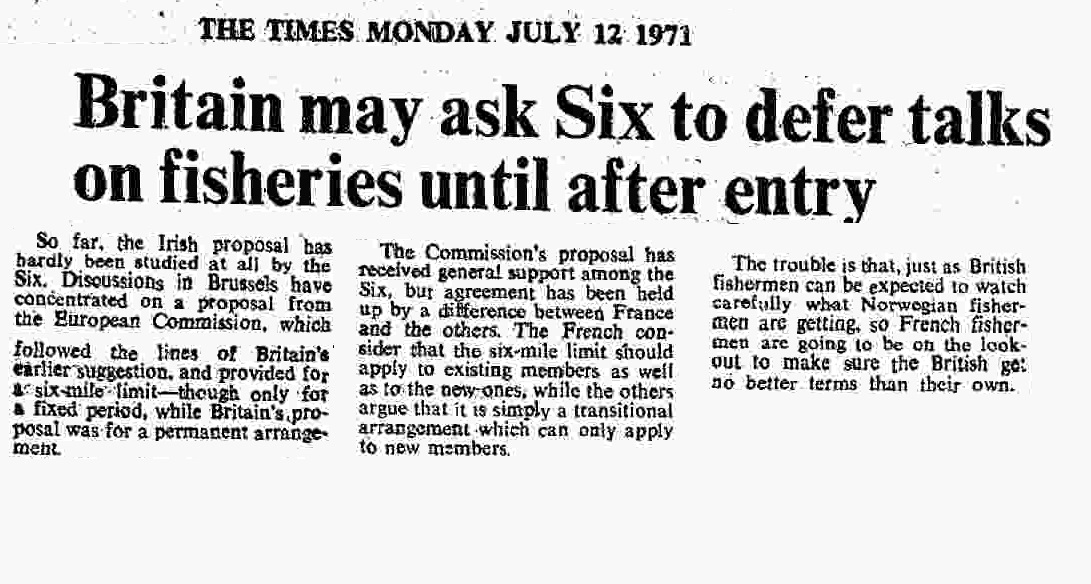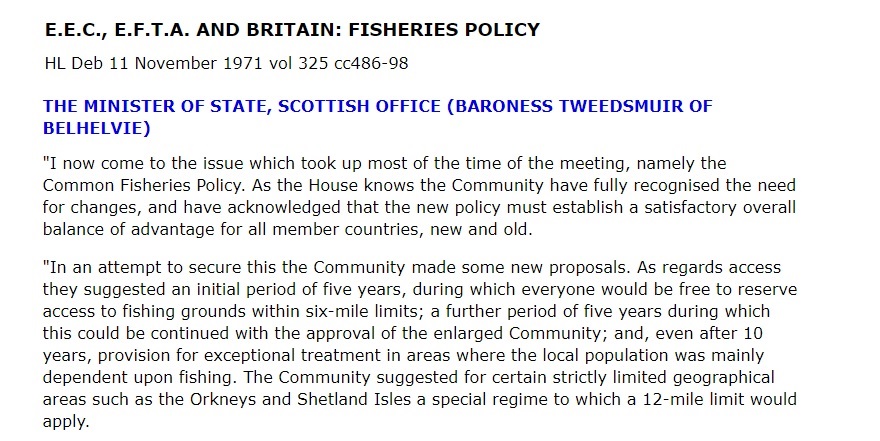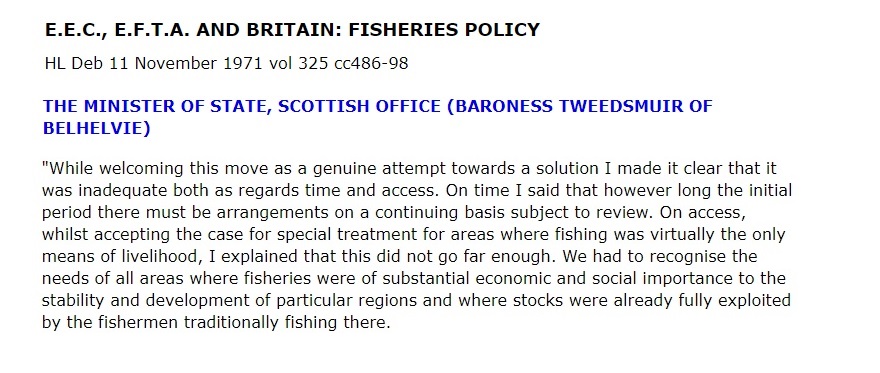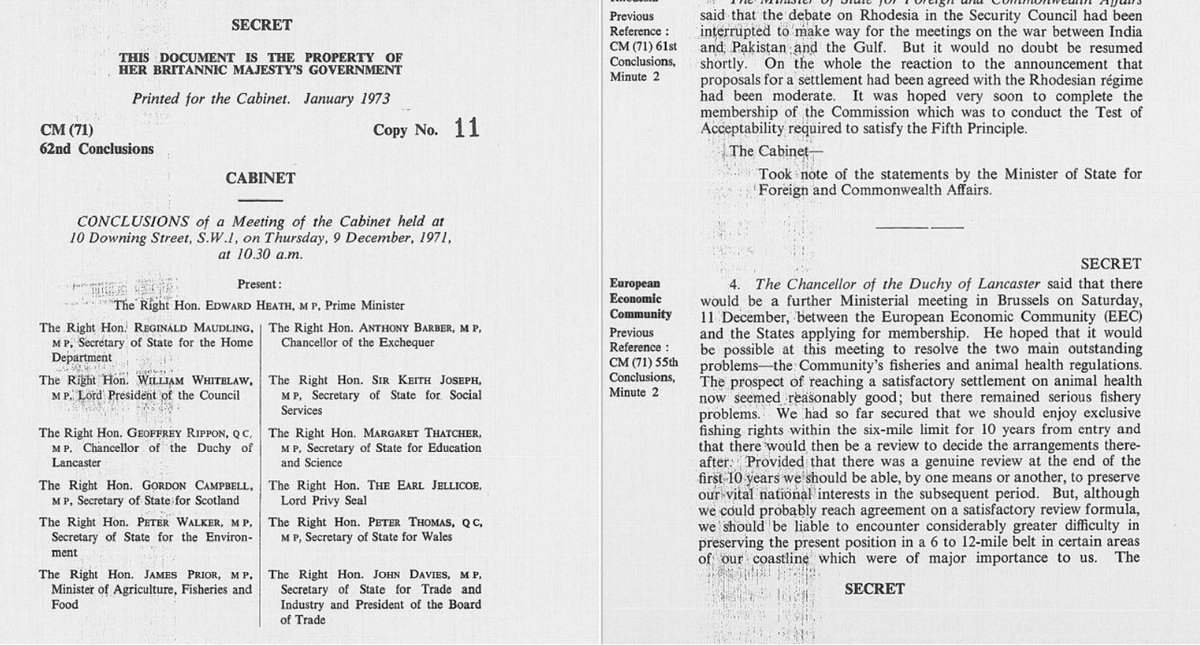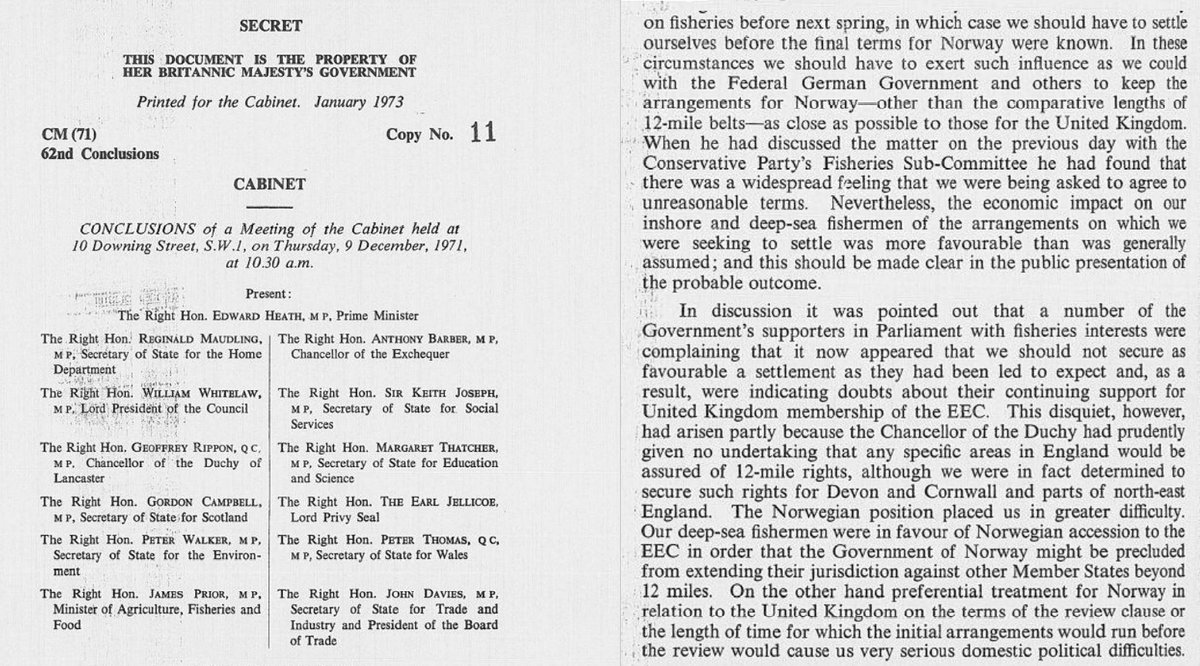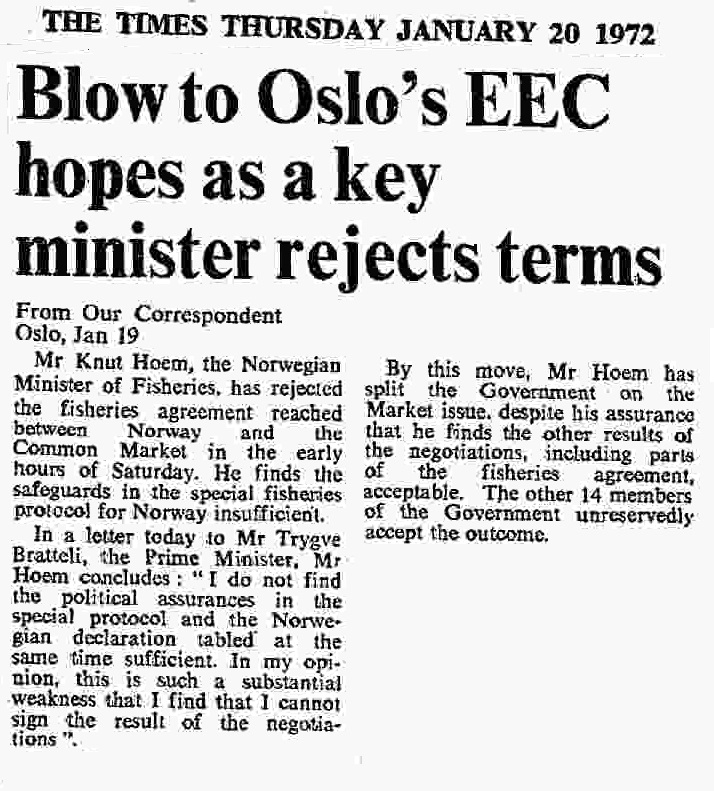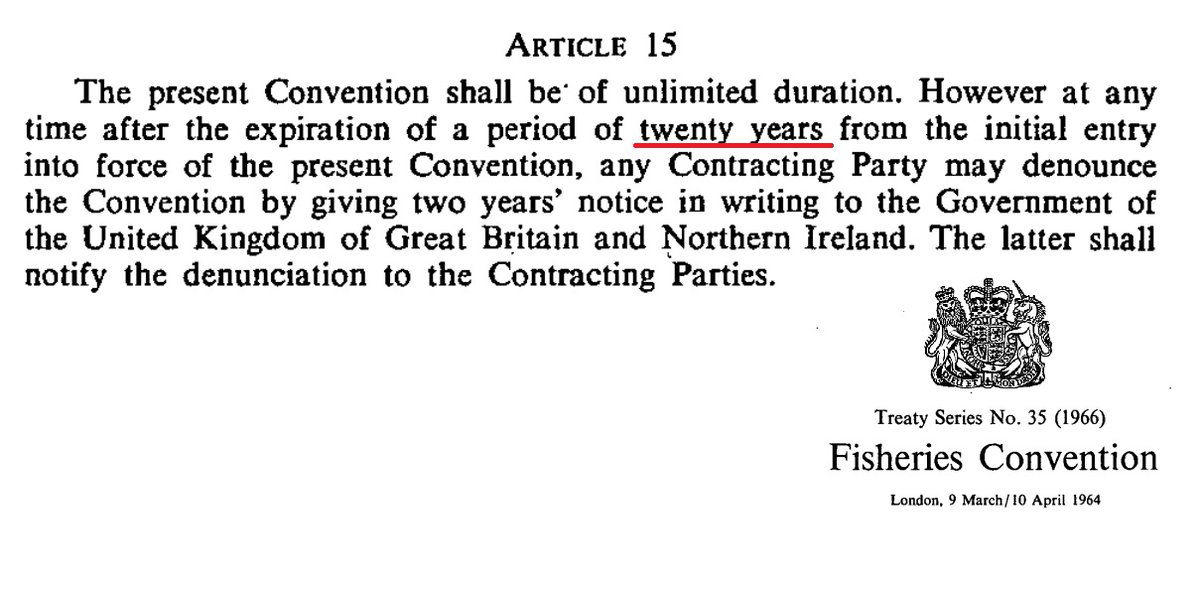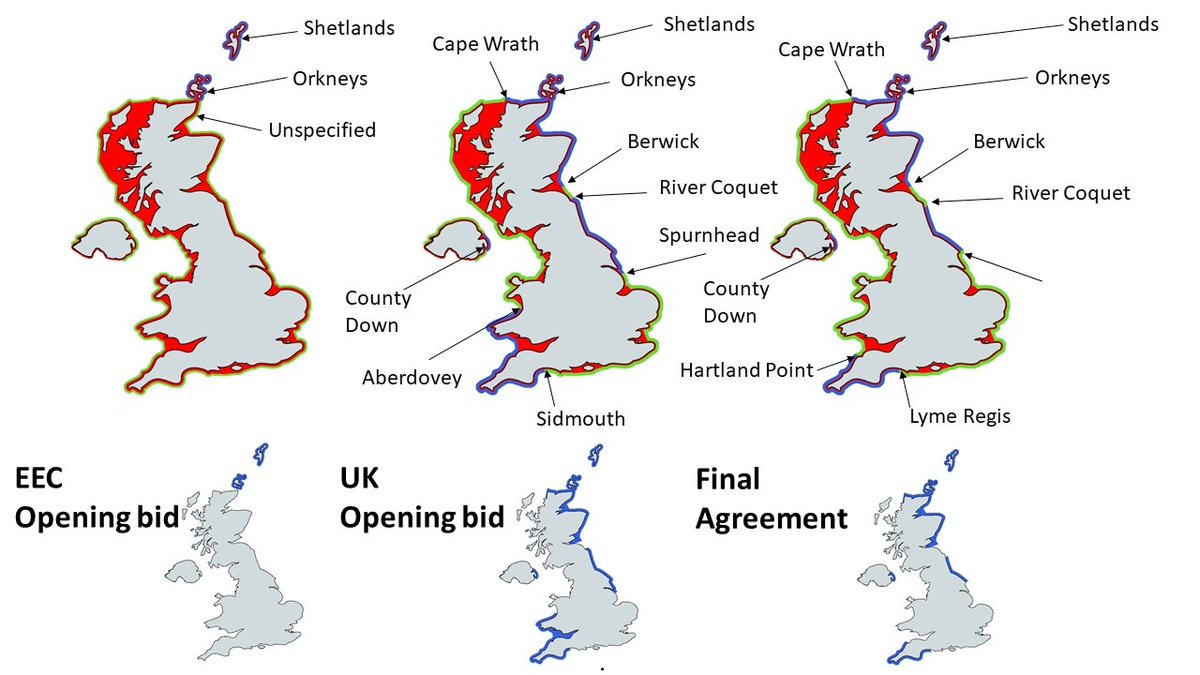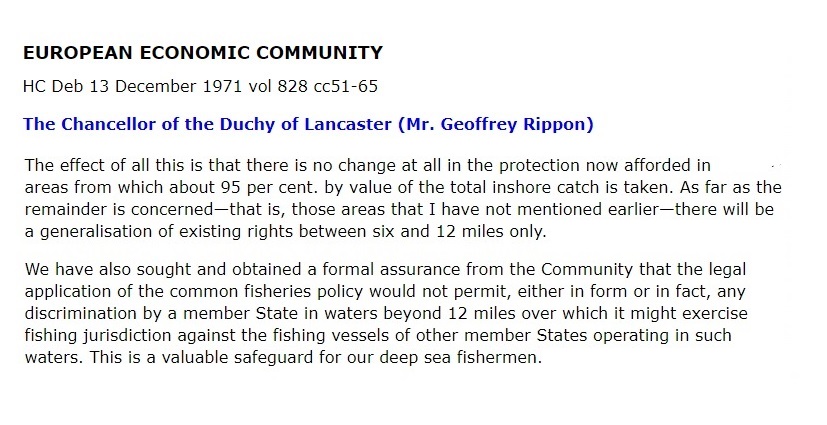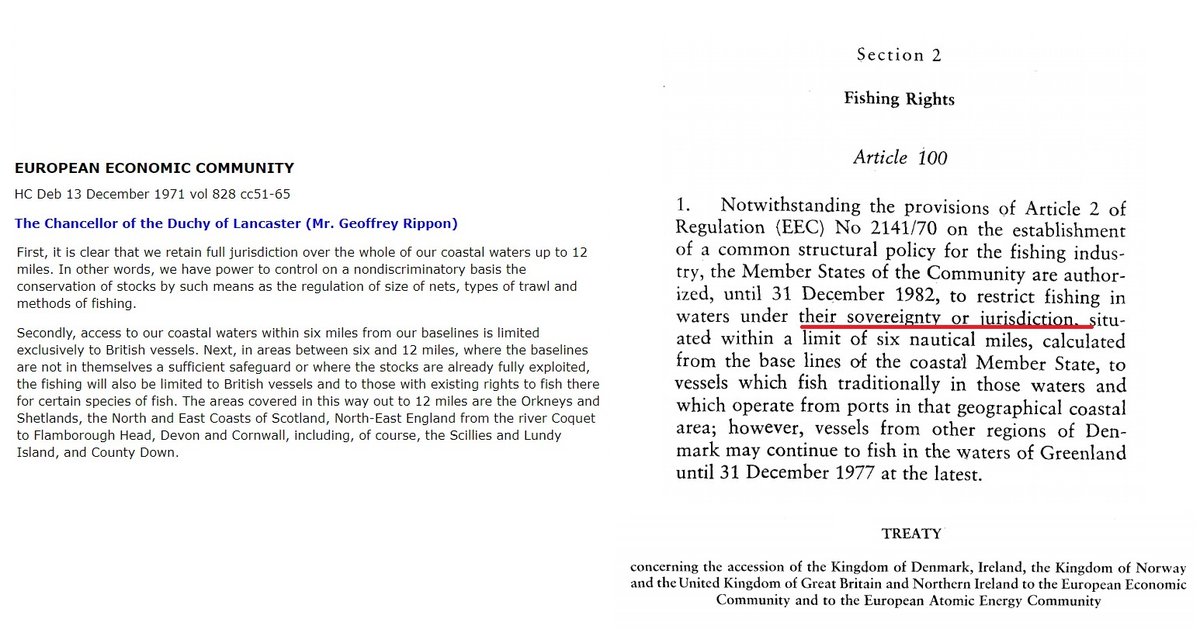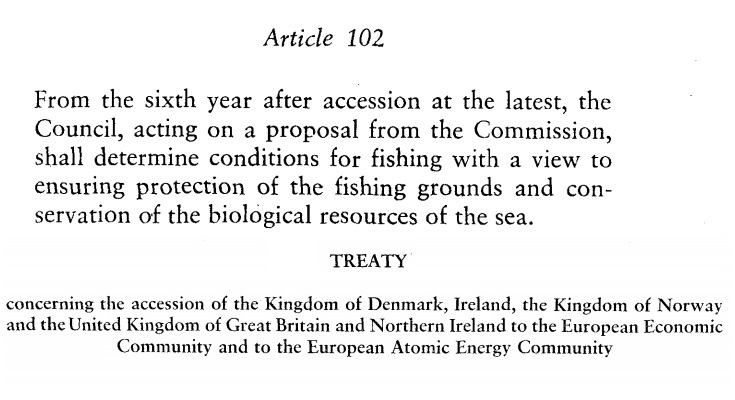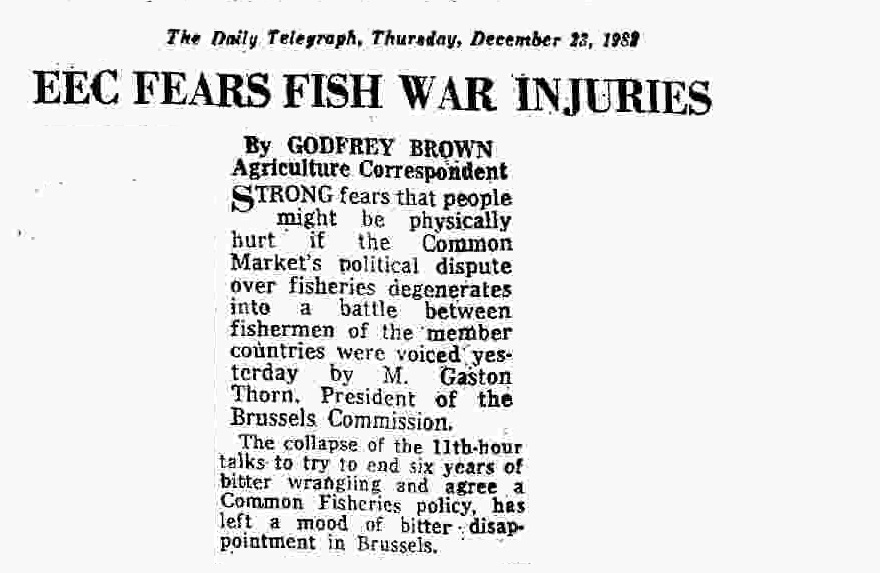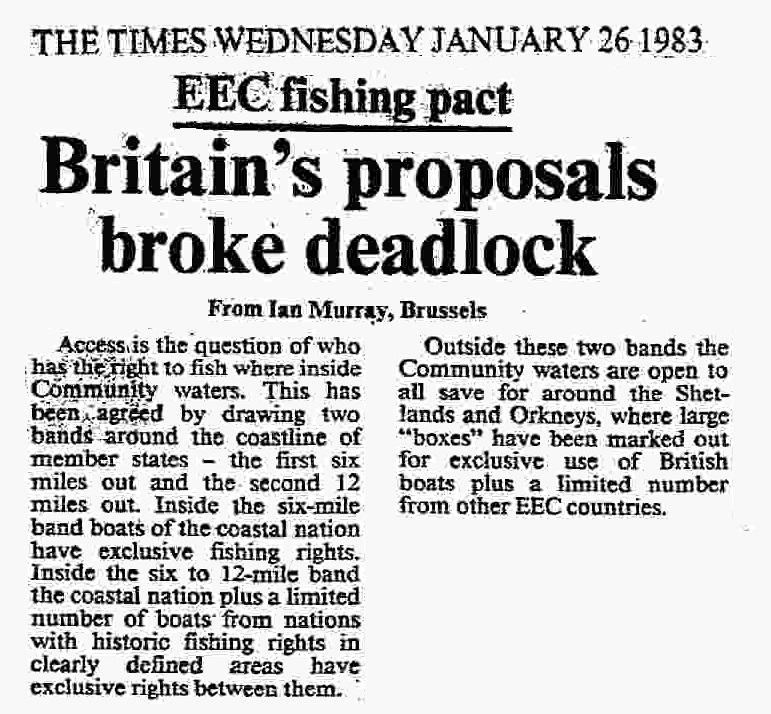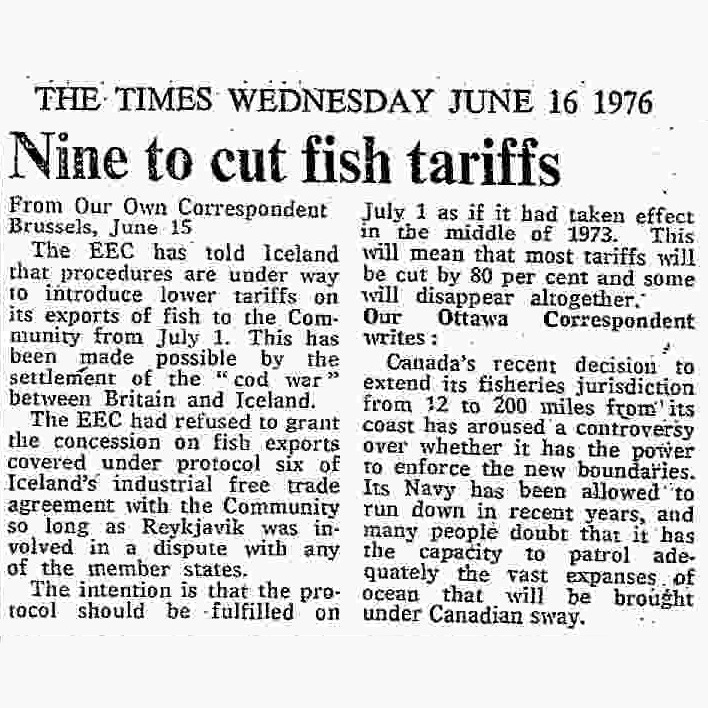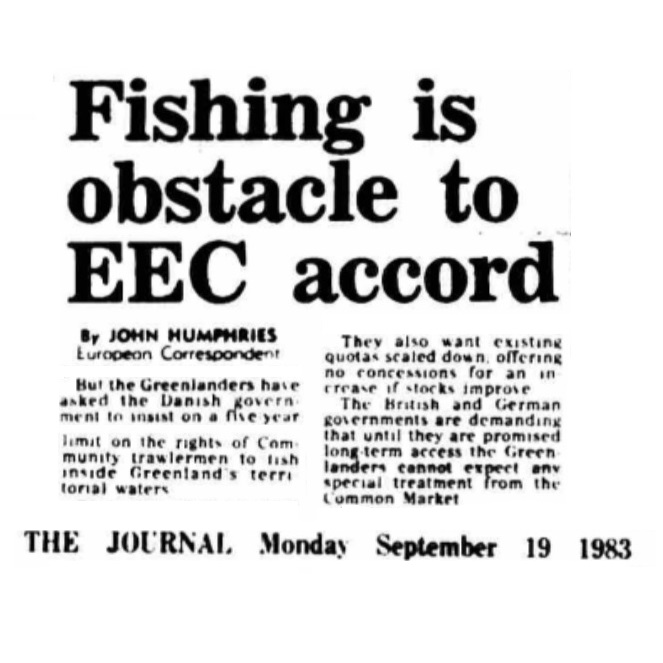1. Fish is one of the sticking points of a new deal, so let’s talk about why this is going to be a difficult thing for the UK to negotiate. (Thread)
2. Fishing limits are a protectionist trade off between In-shore fishing deep sea fishing. The bigger the exclusion zone countries set for in-shore fishing, the more deep sea fishing is impacted.
3. Although, when it comes to wildlife, conservation is actually important, and this was the argument Iceland made when they wanted to increase the 3 mile limit set by the North Sea Fisheries Convention of 1882.
4. The UK has historically been against large limits, and it was at the Geneva conference of territorial waters in 1958 they insisted that a 12 mile limit would threaten the Great British meal of fish and chips.
5. The UK would go on to offer a 6 mile limit as a compromise, while the similarly minded US went further and offered a “six plus six” agreement. A 6 mile exclusion limit with a further 6 subject to existing vested interest.
6. As the conference continued, our deep sea fisherman were worried at a rumour that, regardless of what is agreed, Iceland will unilaterally declare a 12 mile limit.
7. Their fears were justified, Iceland announced that they would be adopting a 12 mile limit shortly afterwards, and simply rejected the difficulties of negotiating it.
8. In 1960, after a 2nd conference failed to agree to increase limits, Norway began to negotiate their jurisdiction to 12 miles and agreed a 10 year transition period with the UK.
9. Three years later it was the UK’s turn, taking an internationalist approach, it called a conference to negotiate a 12 mile limit before presenting a joint UK/Common Market proposal.
10. And a “six plus six” agreement was made. A six miles exclusion, and an additional six miles which still allowed countries to continue their historic fishing patterns.
11. By the late 1960s, while our inshore fisherman are experiencing gains from the extension, it is EFTA that is damaging our fishing industry.
12. When the UK respond, Norway does not take it well, and there is a discussion of ending EFTA to create a Nordic customs union.
17. And while the small fishing boats are doing well, the cost of replacement of the larger boats has become prohibitive.
18. It is in this context that we begin negotiating with the EEC, and a while a lot is made of the EEC moving on fishing policy on the first day (30th June) we actually expected it to happen on the 27th June.
19. The proposed policy involved a free market of fish whereby Norway would be restricted in terms of subsidies, we would have better sales access and legislative input in an important market, and the Farm Fund could be used to modernise fishing fleets.
20. It& #39;s not all good. The requirement of a 3 mile limit dropping to zero may have been good for the Empire, but not so much for the fishing fleet of the 1970s, and the conservation clause is not very reassuring.
21. Consequently, Parliament would be an issue, but equally the UK could take a combined position with Norway, and concessions the UK made would benefit its deep sea fishing fleet, while preventing Norway following Iceland in a further extension of their limits.
23. To deal with parliament the government publish a document explaining the issues with the regulation.
24. And to make it clear that the UK don’t have a 12 mile limit, it’s a ‘six add six’ limit, and quite a few countries are already fishing in the outer six.
25. Although the fisherman are quick to point out that there are limitations to this fishing and there are conservation issues with things like the size of nets.
This isn’t so bad because conservation is a lot easier to negotiate than limits.
This isn’t so bad because conservation is a lot easier to negotiate than limits.
26. Meanwhile the Prime minister visits the French President who agrees that it was politically necessary for the UK to get concessions, and requested we don’t draw too much attention to them because it’s a political issue in France too.
27. They then announce to parliament their opening position. It’s not gain for one party, but a 6 miles limit for all countries in the Community.
28. The community’s response is that only the joining countries should benefit, but it had to be temporary.
29. Domestically things are heating up with protests from fishermen who are worried about the conservation, and a worst case scenario of a 3 mile limit.
30. By November the EEC were offering a 12 mile limit for 5 years with an addition 5 subject to agreement. A 12 mile limit for the Shetland Isles and the Orkneys, and exceptional treatment for other dependent areas even after the 10 years.
31. The UK government’s response was that the duration was too short, there must be a prospect of continuation after that period, and we wanted more than just the exceptional circumstances.
32. The UK’s chief negotiator, Geoffrey Rippon, invites the EEC into talks and keeps them talking.
33. By the start of December the EEC had agreed to 10 years with a review to follow, but with the Shetland Isles, the Orkneys, and some unspecified part of the East Scottish coast.
34. By this time, the government are losing parliamentary support and know that should Norway get more than them it could be worse. It is also noted that Norway may get more in the 10 year review, which would also lead to domestic trouble.
35. When the deal is finally done, it is the temporary part of the deal, and the associated safeguards, that the Norwegian Minister of fisheries finds unacceptable, and he resigns.
36. But Norway’s 12 mile deal isn’t based on the European fisheries convention, and if there is no agreement on international limits by 1984, the UK are looking at a re-negotiation, where no agreement would mean no limits.
37. The UK get most of what they asked for in terms of areas where there is a retention of the 1964 convention.
38. The government had done the maths and determined that there would be no change to the protection in areas from which roughly 95% by value of the total inshore catch was taken.
39. In terms of conservation, the agreement asserts our sovereignty rights under Article 1 of the Convention on the Territorial Sea and the Contiguous Zone.
(Eurosceptics historically quote Rippon to suggest he lied about a 12 mile limit, so here is the full context)
(Eurosceptics historically quote Rippon to suggest he lied about a 12 mile limit, so here is the full context)
40. There was also a requirement for the Commission to bring forward a proposal to ensure protection of our shared fishing grounds with a view to removing the necessity of fisherman from other countries in the Community to come into our waters.
41. It& #39;s true to say the move to Common fisheries would prove to a bit of a Brexit moment for the EEC, as they entered into a project without really understanding the political and technical difficulties with such a venture.
42. However, after much arguing about future limits, the EEC countries finally settle on… a six by six agreement. Almost exactly the agreement they went in with but with more historical access.
43. In 1971 the UK government chose to act to protect our struggling deep sea fishing industry in a manner consistent with 100 years of British policy while trying to square the circle between conservation and demands for protectionism.
44. This time the trade-off is continuity that protects our fish processing industry and being seen to be uncompromising in a area that has been unfairly portrayed as a sell-out for 20 years.
That’s not going to be easy, and it& #39;s not just the fish industry at stake here.
/End
That’s not going to be easy, and it& #39;s not just the fish industry at stake here.
/End

 Read on Twitter
Read on Twitter